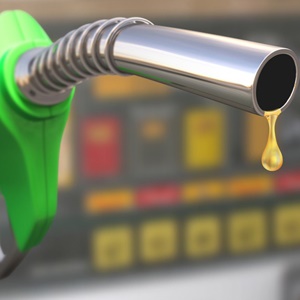
- By: News
- 0 comment
- The petrol price could hit R24 in April, and where it goes from there is in part up to Russia and Nato.
- The record-high prices are making it pretty expensive to drive between South Africa’s cities.
- A one-way trip from Johannesburg to Durban will cost the average motorist R1,000. Go to Cape Town, and the price hits R2,400.
- For more stories go to www.BusinessInsider.co.za.
In April, one litre of petrol bought inland could cost R24.
Just what the price will actually be remains to be seen. This week finance minister Enoch Godongwana alluded to “sensitive” discussions about efforts to at least temporarily blunt the impact of high oil prices as soon as April, though he would not reveal any details.
What happens after April is just about anyone’s guess. When Europe decides not to boycott Russian oil, prices fall. When Nato is said to be working on plans to send anti-ship missiles to Ukraine, prices rise. Serious oil traders are seriously suggesting that the oil price could hit $200 per barrel under the right circumstances, effectively doubling the price of petrol in South Africa unless the government does something drastic.
Hopes for the opposite, a sudden plummet in oil and so petrol prices, are very distant indeed. And there is little time left for a radical change to make an impact on those planning to do some serious long-distance driving during the Easter holidays.
This year, the traditional trek to the seaside is going to hurt.
Fuel efficiency varies wildly, with tiny city runabouts claiming to use under four litres of petrol to take you 100km, while you can buy a new vehicle that will need 10 litres to do the same. Factoring in the high level of SUVs on the road and the state of older cars, SA’s official average petrol consumption is at 7.1 litres per 100km, and that is what we used in our calculations.
Here’s what it will cost to drive some of South Africa’s favourite long-distance routes with petrol at R24 per litre.
Johannesburg to Durban: R1,000, plus R286.50 in tolls
Durban and Johannesburg are officially about 570km from one another, though you can add on a bit if you are going to and from Umhlanga, or Joburg’s northern suburbs.
That makes for just about 40 litres of petrol at average consumption, for not much under R1,000 in straight fuel costs.
You can add in another R286.50 for toll fees, unless you are willing to spend about an hour bypassing the toll gates. For many types of cars, that bypass approach will save you some money, even at R24 for every extra litre of petrol you burn, but factor in wear-and-tear and you’d be in the red.
Johannesburg to Cape Town: R2,400, plus R205.50 in tolls
At the official 1,400km between the hearts of the Cape Town and Johannesburg city centres, fuel costs come to just about R2,400 for the 100 litres of petrol the average car will burn to get there.
Take the N1 with its tolls, and you can add R205.50 in cash to that, before factoring in food for what is a 15-hour journey if you are determined – and the overnight accommodation you’ll need to do it if you aren’t a masochist.
Johannesburg to Polokwane: R540, plus R191 in tolls
The average car should need a bit more than 20 litres of petrol to get from Johannesburg to Polokwane, a distance of some 320km. At the expected R24 per litre, that comes to R540 for the one-way trip.
Since the beginning of March, tolls on the fastest route between the two cities amount to R191.
(Compiled by Phillip de Wet)
SOURCE:
In April, it may cost R2,400 to drive from Joburg to Cape Town – just in petrol | Businessinsider



